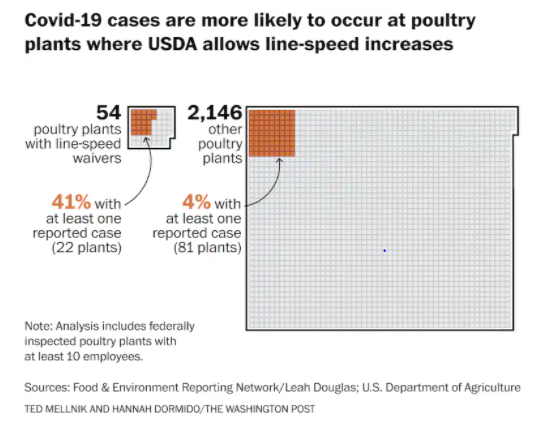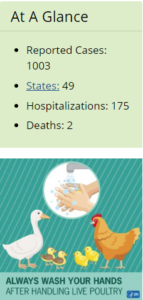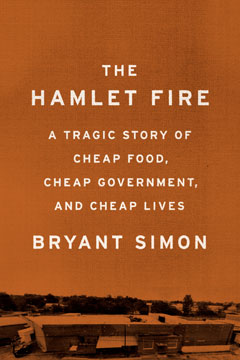More good news: USDA reverses increase in poultry line speeds
President Biden has blocked the Trump Administration’s allowance of increased speeds on poultry processing lines.
I first heard about this from an announcement from Food and Water Watch.
As described by The Counter, the Trump rule allowed facilities “to slaughter chickens at a rate of 175 birds per minute—equivalent to 3 birds a second—up from the industry standard of 140 birds per minute.”
As the Washington Post describes, poultry processing plants with higher line speeds are more dangerous for workers.

The history of the rule changes over the past few years is given on the USDA website.
But line speeds are only one of the problems with poultry safety. Salmonella is another. The history of attempts to reduce Salmonella in poultry is summarized by Michael Taylor, former USDA official, at FoodSafetyNews.com: “Our poultry safety regulation isn’t working: It’s past time to fix it.”
This is why food safety groups have filed a petition
urging FSIS [USDA’s Food Safety and Inspection Service] to modernize its food safety standards by establishing enforceable standards targeting Salmonella types of greatest public health concern while reducing all Salmonella and Campylobacter in poultry. We also ask that FSIS ensure the safety of the food supply chain from farm to fork by requiring slaughter establishments to adopt and implement effective supply chain programs, and by publishing finalized versions of its “DRAFT FSIS Compliance Guidance for Controlling Salmonella and Campylobacter in Raw Poultry.”
Biden’s first 100 days seems like a terrific opportunity to make poultry production safer for workers and for people who eat the poultry produced in these plants.




